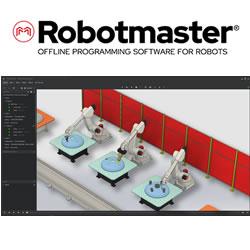Field of Competitors Expands for DRC Finals
Track switch by Team SCHAFT allows Teams ViGIR, THOR, and KAIST to become DRC Trials finalists; ViGIR and THOR become eligible to receive DARPA funding for participation in DRC Finals
Team SCHAFT, the highest-scoring team at the DARPA Robotics Challenge (DRC) Trials in December 2013, has elected to switch to the self-funded Track D of the program. The team was recently acquired by Google Inc.
Team SCHAFT's move frees funds for DARPA to support additional teams to compete in the DRC Finals. DARPA will now include on the list of DRC Trials finalists Teams THOR, ViGIR, and KAIST, which each earned eight points in the DRC Trials. Teams THOR and ViGIR are each eligible for up to $500K of DARPA funding. Team KAIST, which is already part of Track D, will continue as a self-funded team.
Professor Dennis Hong, the leader of Team THOR at the DRC Trials, has moved to The University of California, Los Angeles (UCLA). As a result, Team THOR has opted to split into two teams that will divide the DARPA funding. One team will be based at UCLA under the leadership of Prof. Hong, while the other team will remain at Virginia Polytechnic Institute and State University (Virginia Tech) under the leadership of Prof. Tomo Furukawa.
DRC program manager Gill Pratt noted, "The decision by Team SCHAFT to self-fund allows DARPA to expand the competition and further develop disaster response robots. This expansion is similar to what happened after DARPA held the Virtual Robotics Challenge in June 2013, when some teams shifted resources and allowed us to increase participation. I look forward to seeing the results of efforts by our new finalists and new team."
DARPA will announce the location and date of the DRC Finals in the coming months. DARPA plans to hold the event between December 2014 and June 2015.
Featured Product

Robotmaster® 2024
Program multi-robot cells and automatically solve robotic errors with ease. Hypertherm Associates announces a new version to its robotic programming software. Robotmaster 2024 addresses key market trends including the support for programming multiple robots in a single work cell and the demand for automatic trajectory optimization and robotic error correction.
